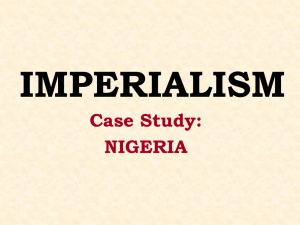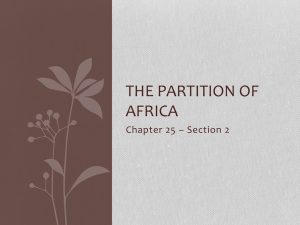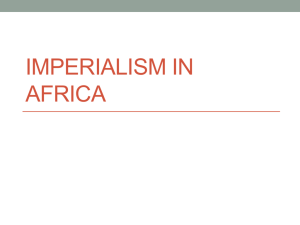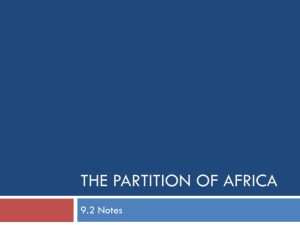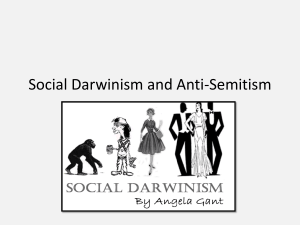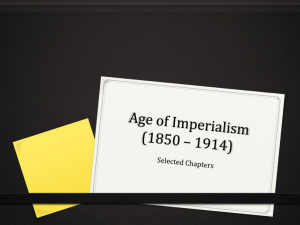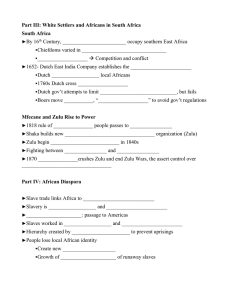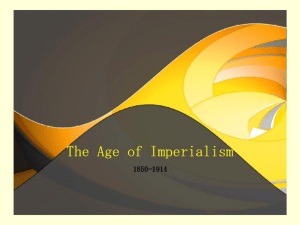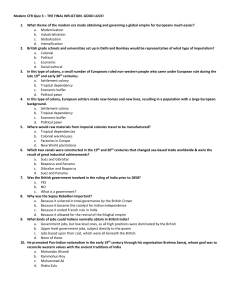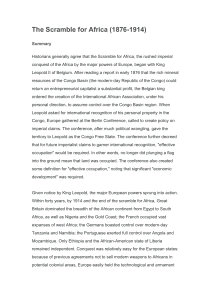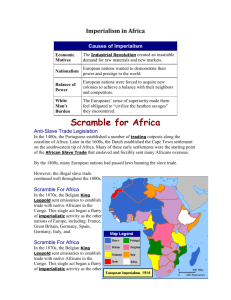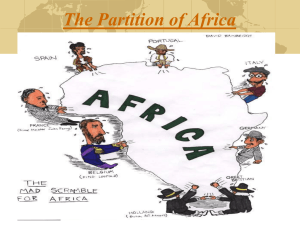Ch. 11: The Age of Imperialism Sec. 3: The Scramble for Africa
advertisement
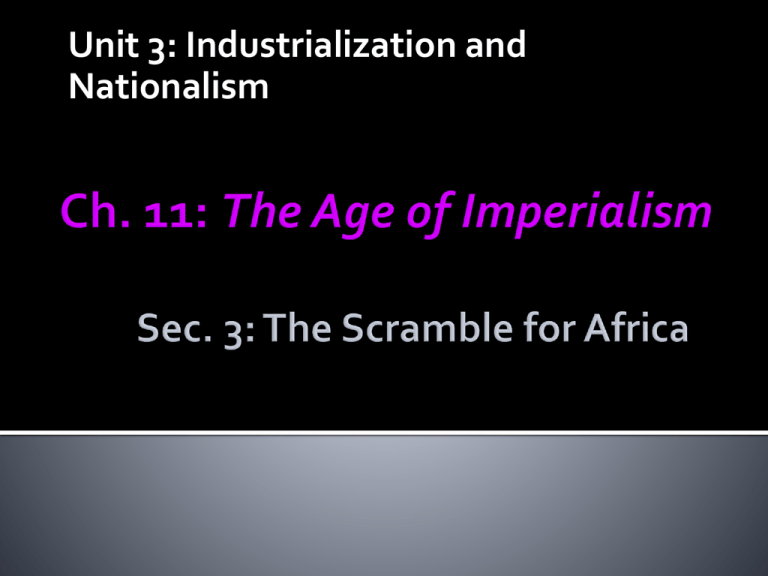
Unit 3: Industrialization and Nationalism A. Decentralized; disunity; rich in resources ▪ Hundreds of different languages ▪ Politically diverse-villages to large empires ▪ Religious differences-traditional, Muslim, Christian B. Early European Contact (late 1400s) ▪ Coastal-rugged geography and hostile people ▪ slave trade (West) ▪ salt trade (North) ▪ trading posts (South) ▪ by 1880-only 10% under European control (not in interior) A. Interior realm of missionaries and explorers African “mystique” sparked interest in publications ▪ 1870s-Henry Stanley’s search for Dr. David Livingstone (well-publicized); opened Congo to European interest B. Belgium est. control over Congo (1880) ▪ Leopold II uses humanitarian front (end slavery) to mask exploitation of Africans ▪ Rubber plantations drained economy led to starvation ▪ Belgium’s wealth encouraged other European nations to compete for African “pie” 1. 2. 3. Industrial Revolution -resources and markets Nationalism -colonies increased nation’s prestige Racism -belief in European/white racial superiority Social Darwinism (strongest races survive) 4. 5. Missionary zeal to “Christianize” the heathen Technological/ Scientific Advancements technology superiority (esp. in weaponry) transportation (opened up continent to European control) medical advancements (quinine) 6. African disunity A. Berlin Conference (1884-85) Europe meets to divide Africa “fairly” Guidelines for control ▪ if you can show a “just” claim ▪ if you can hold it By 1914-only Liberia and Ethiopia NOT under European control B. Benefit to Europe Natural Resources -gold, diamonds, rubber, copper, tin, agri. products Dutch (Boers) settled Cape Town (South Africa) in 1600s as trading base British-moved in Cape colony in 1800s 1. Boers escaped northward-“The Great Trek” 2. Were pushed into Zulus conflict Discovery of gold and diamonds increased European immigration 1. Boers tried to limit newcomers’ influence; blamed British Fierce fighting breaks out; concentration camps; guerilla fighting; innocent civilians killed “modern war” foreshadowed future horrors Britain won and est. Union of So. Africa (under British control) 1. The Zulu Wars -1879 British invade Zulu Territory and conquer this powerful tribe in 6 months; made them a colony 2. French West Africa Malinke tribe wages war against French control in Guinea for 15 yrs; finally defeated in 1898 3. German East Africa Maji Maji Rebellion (1905): Africans believe that spirits will protect them in rebellion against Germans; tens of thousands killed before uprising is squelched Emperor Menelik II took steps to modernize Ethiopia 1895- Italy invades Ethiopia over treaty dispute Menelik’s modern army able to defeat Italians in less than a year Menelik II Causes: European nations needed raw materials European powers wanted power & land Europeans strongly influenced by Social Darwinism Effects: Africans lost their land and independence Many Africans died resisting the Europeans
